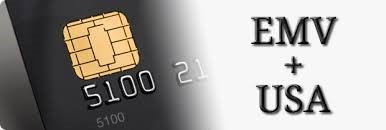
Infonet is already fully engaged in the development of EMV/Chip&PIN solutions for the US market, this is an extension of our existing Chip&PIN solutions we already have in place in Canada for Gilbarco and Wayne dispensers. Please contact us for further details.
PENDING EMV PAIN AT THE PUMP
NEW YORK – Bloomberg reports that there’s a huge pain at the pump, and it has nothing to do with gas prices.
By October 2017, every fuel retailer in the United States “must either accept the new chip-card technology called EMV—named after its backers Europay, MasterCard and Visa—or pay potentially half a billion dollars in collective ‘chargebacks’ for any such fraud,” writes the news source.
Like most retailers, NACS Executive Committee member Jared Scheeler, managing director of the Hub Convenience Stores in Dickinson, North Dakota, is facing a costly decision this year that has no ROI: upgrade or replace every fuel dispenser.
About one third of the 750,000 fuel dispensers in the U.S. are too old and would need to be replaced to accept EMV chip cards, noted Gray Taylor, executive director of Conexxus. The average cost of replacing a fuel dispenser unit is $17,000. In all, the convenience and fuel retailing industry will be on the hook for more than $7 billion to replace or upgrade their POS equipment to accept EMV cards—both inside the store and at the pump. According to Taylor, about one-quarter of the industry cannot afford to implement outdoor EMV, especially when indoor EMV is still ongoing.
So far, outdoor EMV implementation is lagging. “We are close to zero,” Allen Friedman, vice president of payment solutions at Ingenico Group SA, told Bloomberg. “I don’t know any major U.S. petroleum companies or gas-station providers that have even started implementation.”
Even with these concerns from retailers and service providers, and the mounting software certification issues, MasterCard has no plans to change its EMV-migration timeline or change the October 2017 deadline. Chiro Aikat, a senior vice president at MasterCard, told Bloomberg that the company will continue to work with gas stations to implement EMV.
For fleet cards, WEX Inc. told Bloomberg that it won’t have a chip-enabled card available for use until early 2018, according to Phil Baker, WEX’s director of mobile and payments. WEX is voluntarily complying with the EMV switchover, even though fleet cards don’t use mainstream payments networks like Visa and MasterCard.
Scheeler of Hub Convenience Stores expects to spend roughly $130,000 to upgrade three locations to accept EMV chip cards—the equivalent of a year’s profit. “It’s a tough one to swallow,” Scheeler told Bloomberg. “Any investment you make as a business you want to know that you get a return on investment. I am not expecting a return on this investment—ever.”